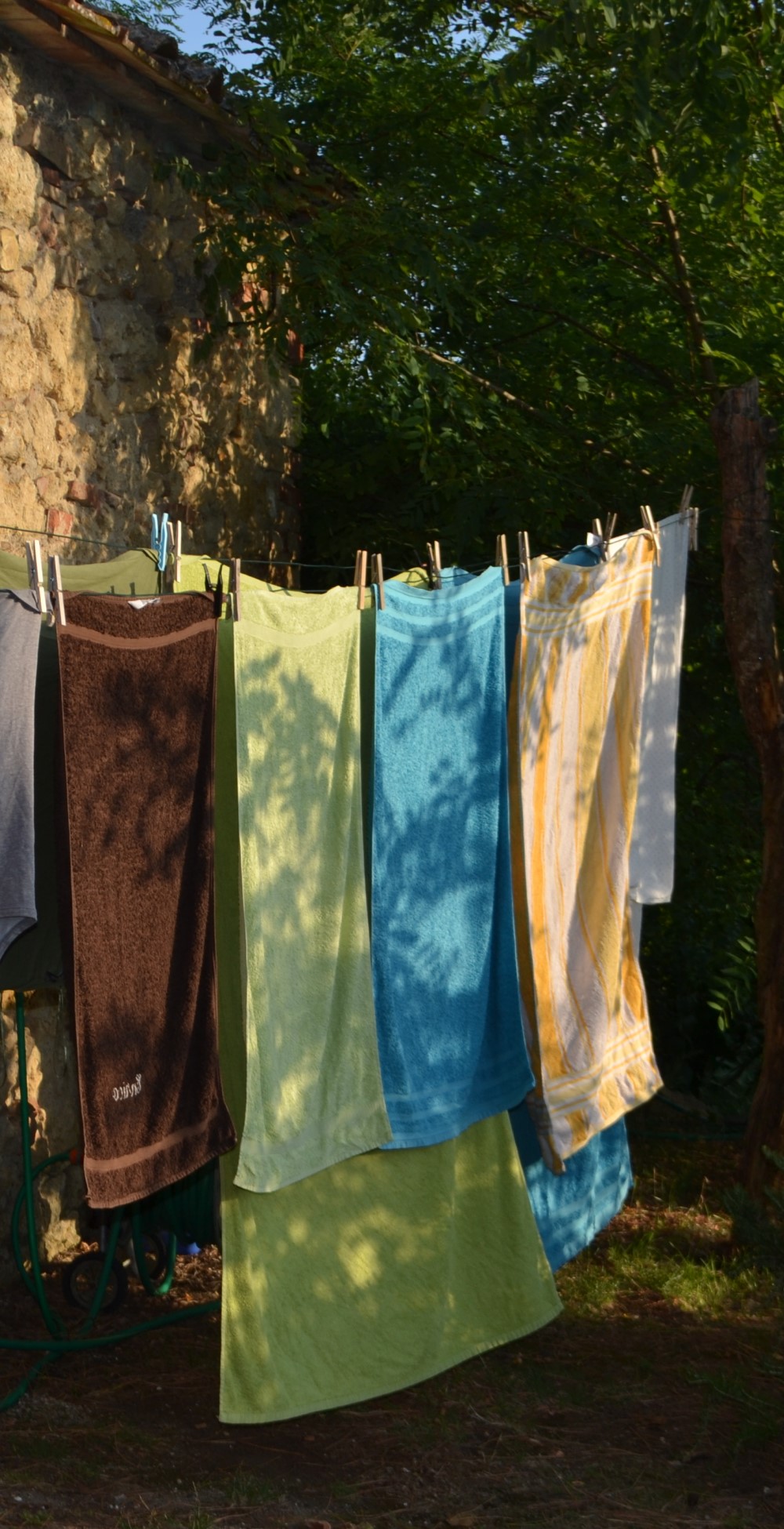
Green holiday in Italy, where Tuscany is still authentic
We are glad offering you green holiday in Italy. Even during vacation, you can enjoy your life as environmentally friendly and climate neutral as possible. Save the planet while staying in Tuscany just the way you do at home. At Agriturismo Podere Palazzone we face up to our responsibility towards environment and therefore are committed to sustainability. We know it is only a small contribution we can give, but in our concrete sphere of influence we try doing our best. The environmental conditions around our holiday home, as well as the natural resources of Tuscany in the surroundings, do certainly help us.
Obviously, our guests have the chance of minimising their ecological footprint during their stay at Agriturismo Podere Palazzone, too. Nevertheless, without compromising on comfort. Find out more about how we and you can make green holiday in Italy come true.
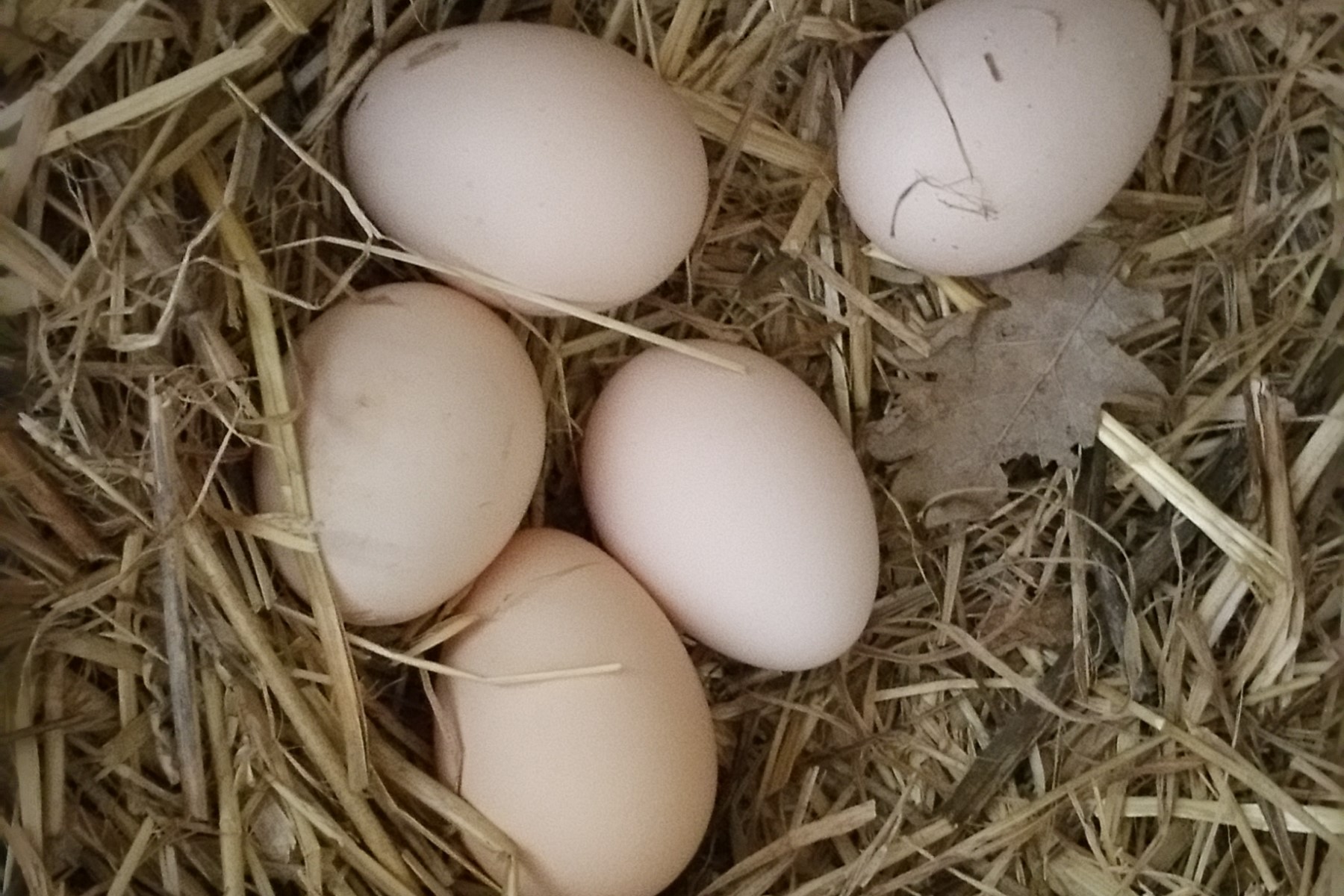
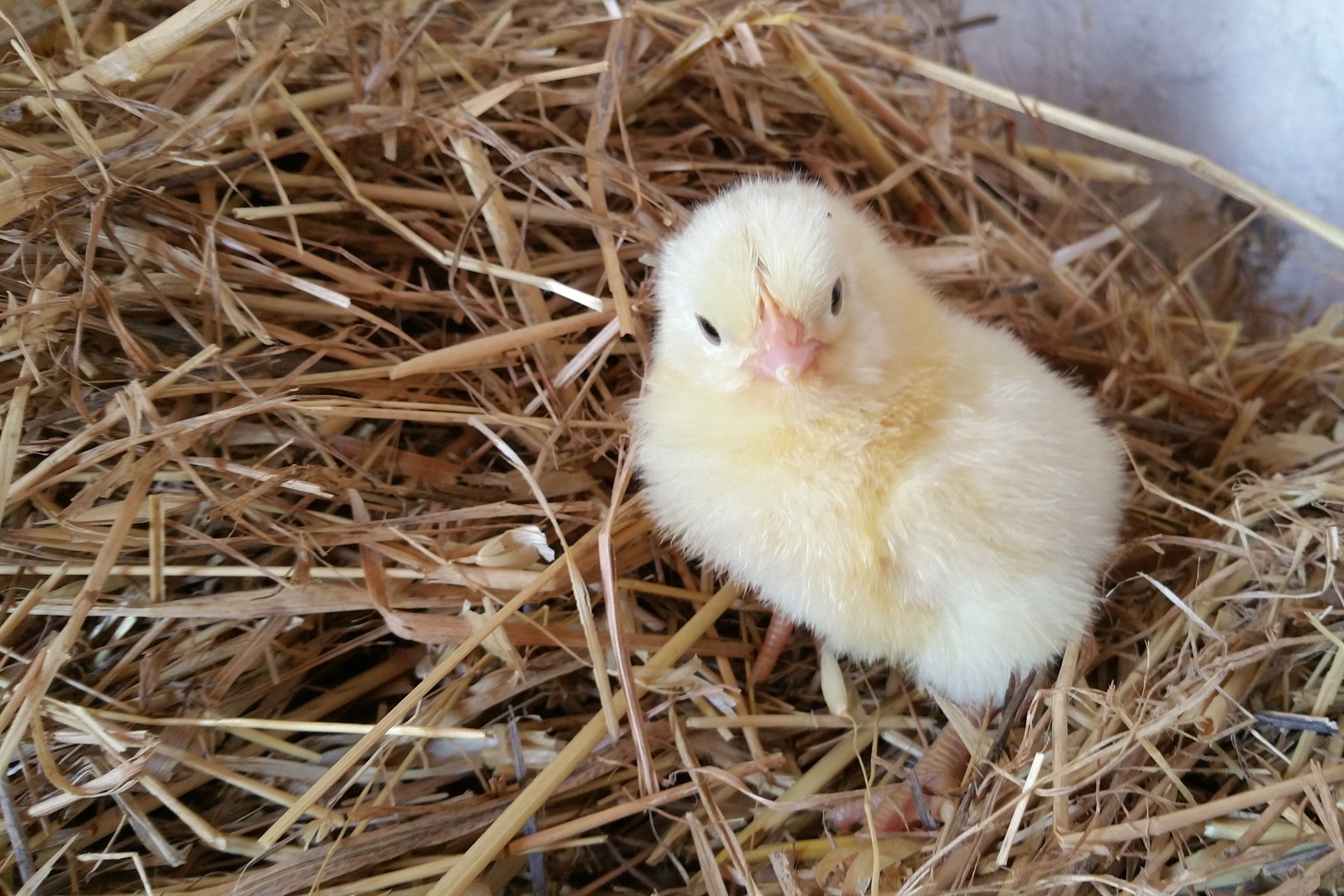
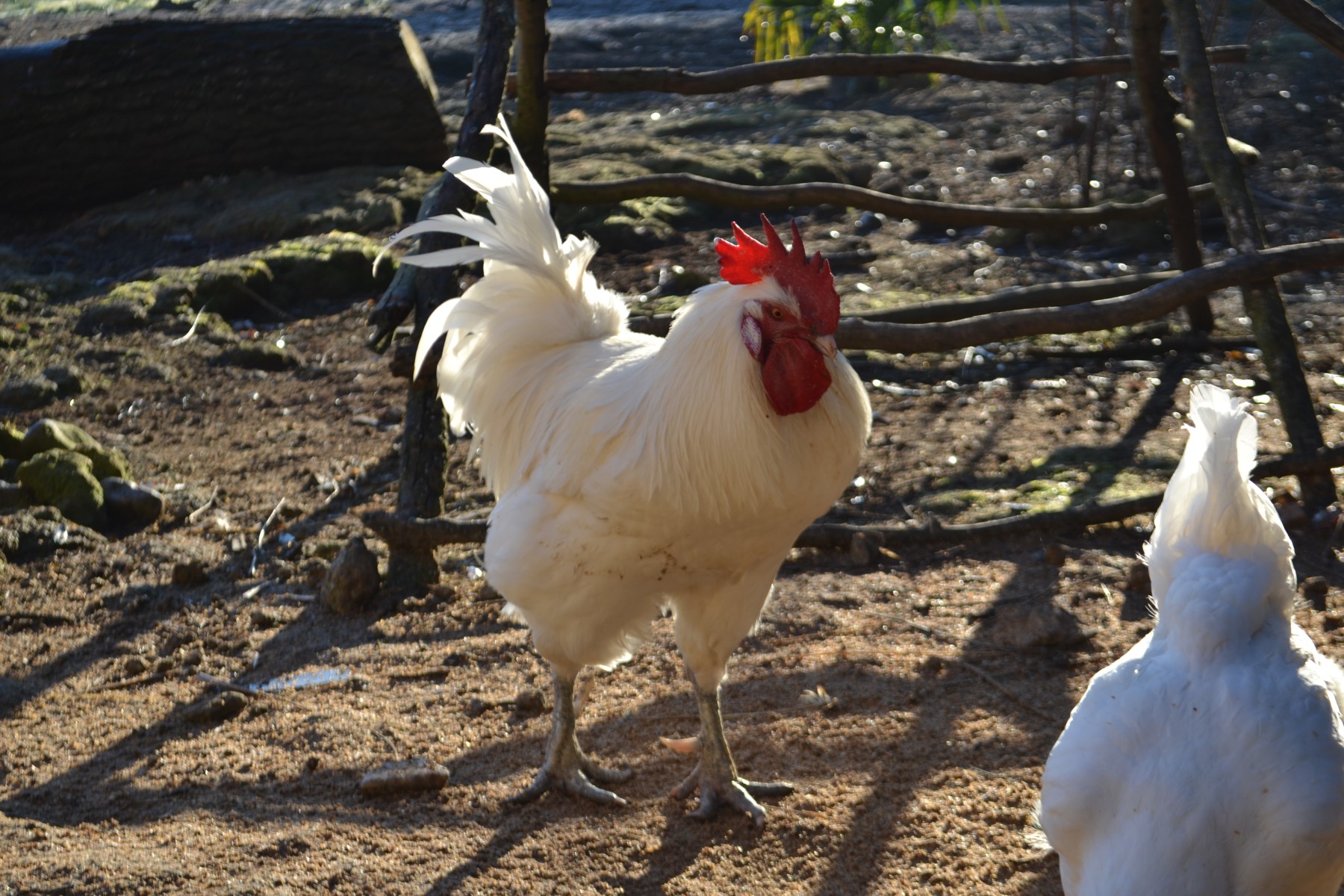
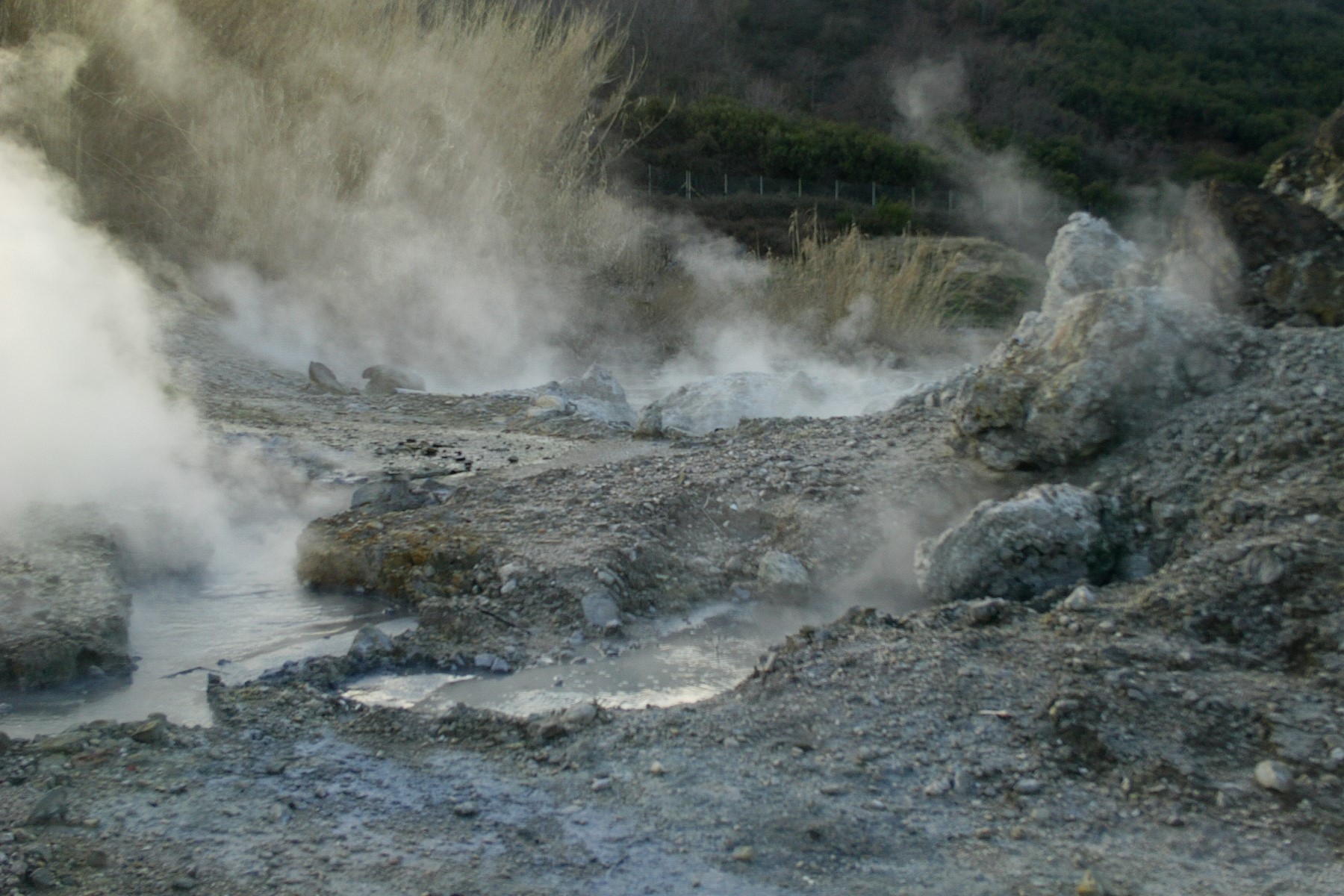
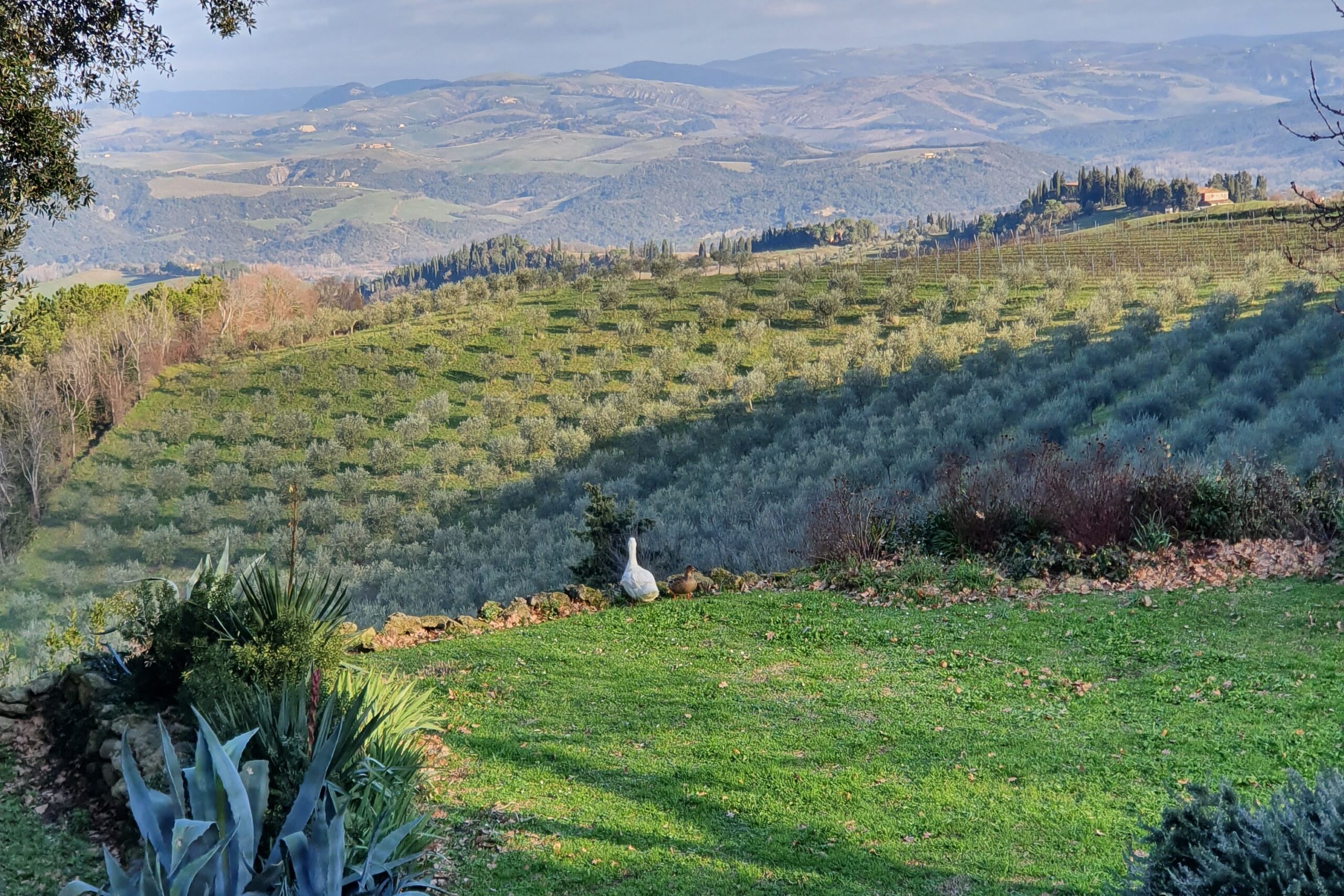
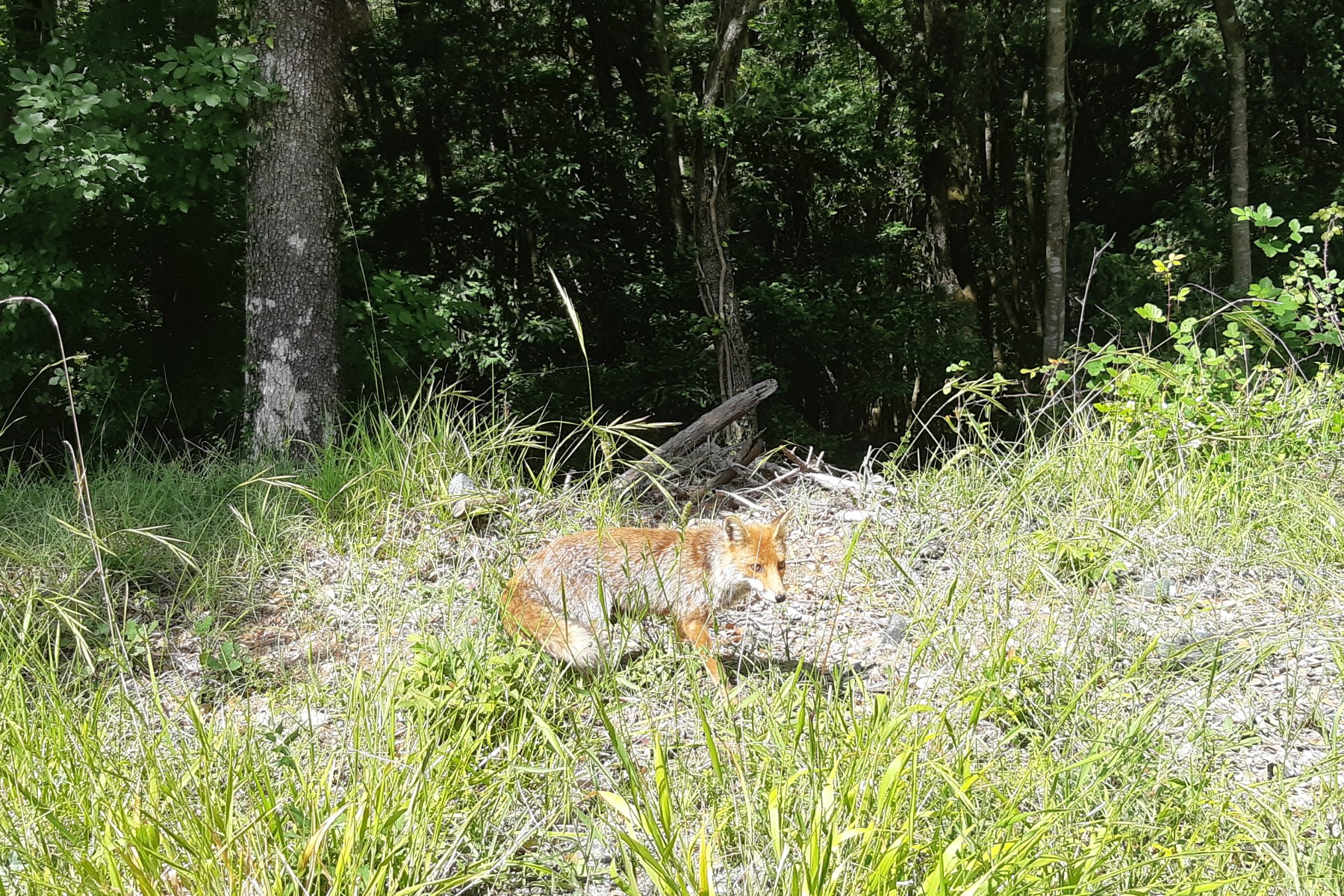
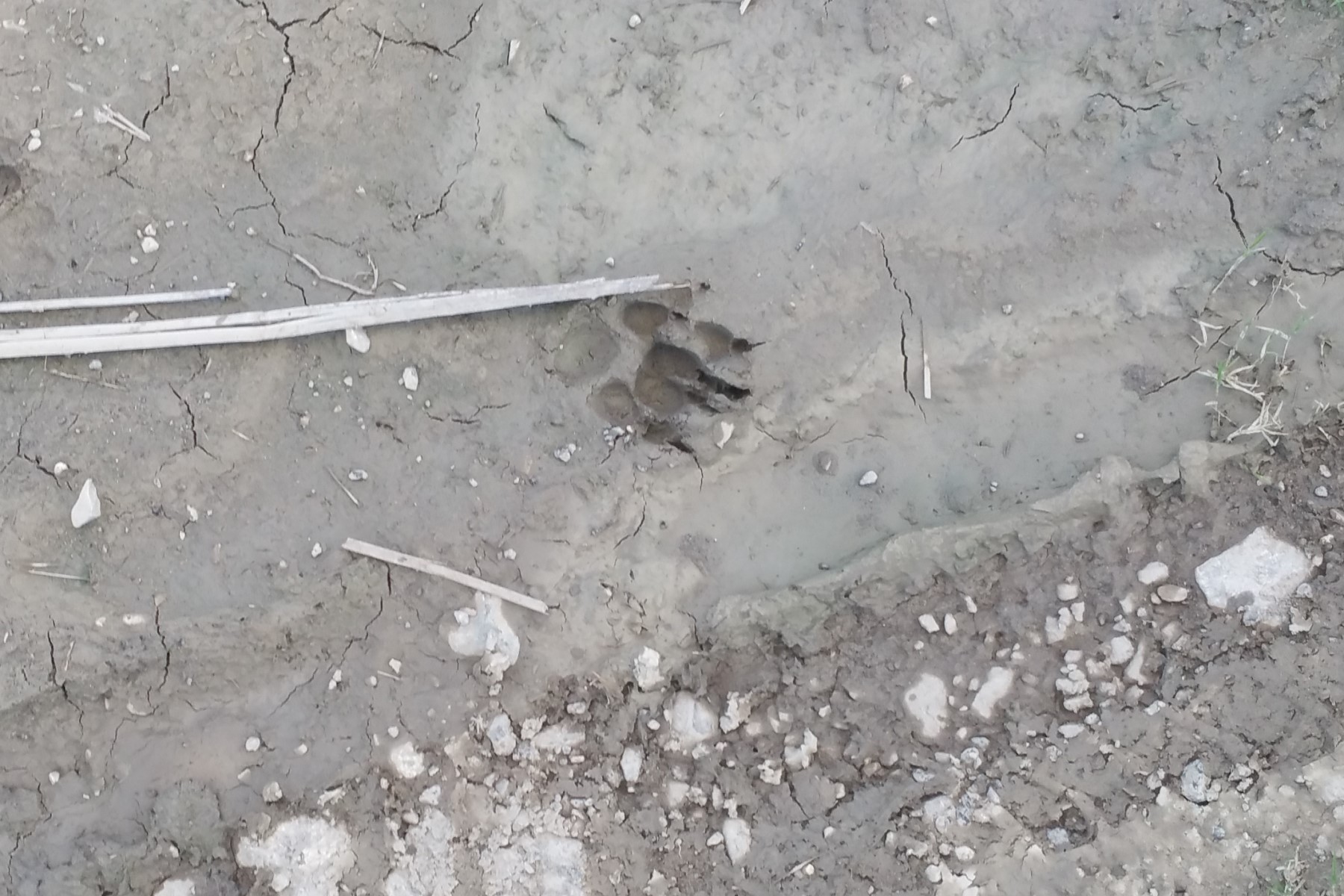
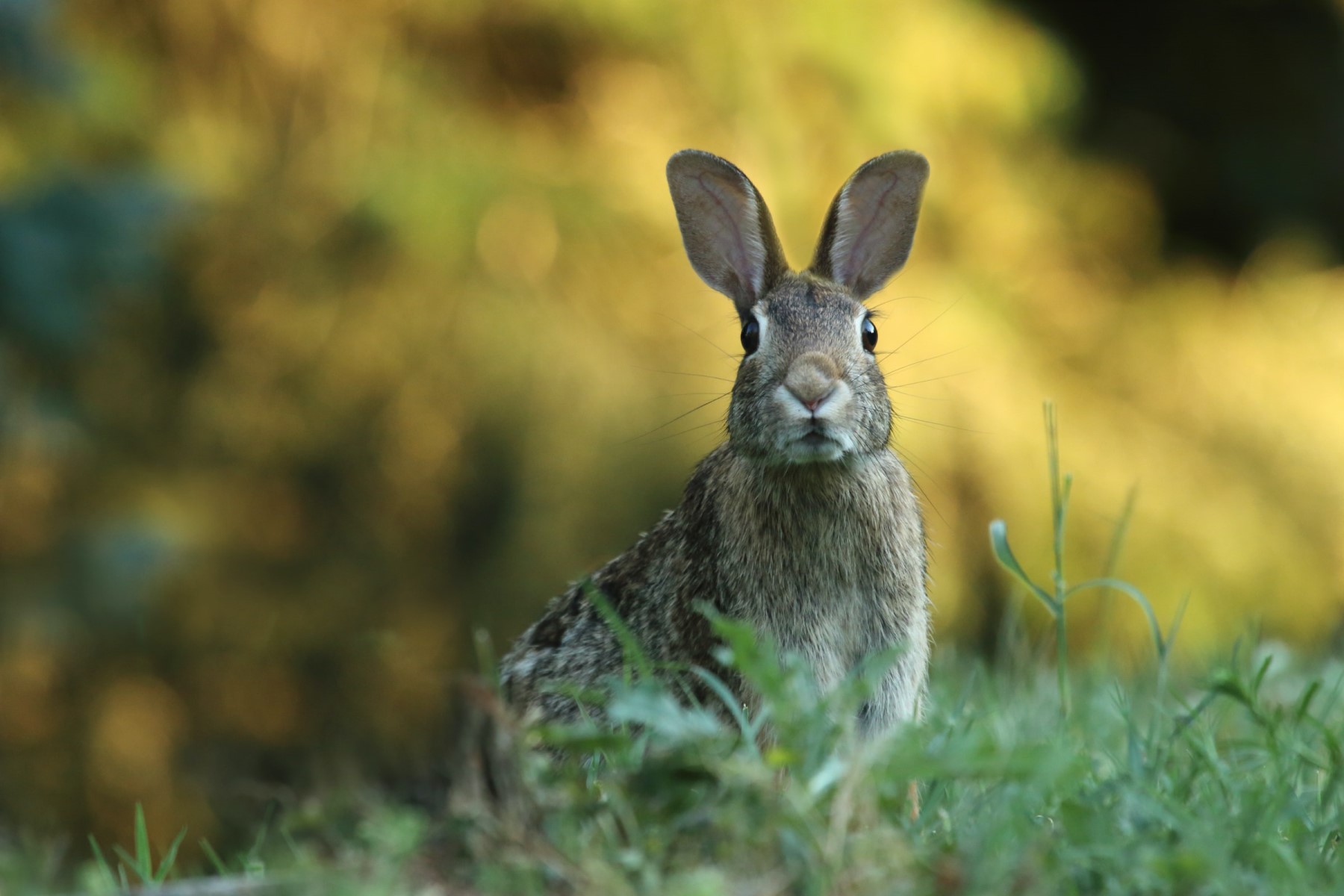
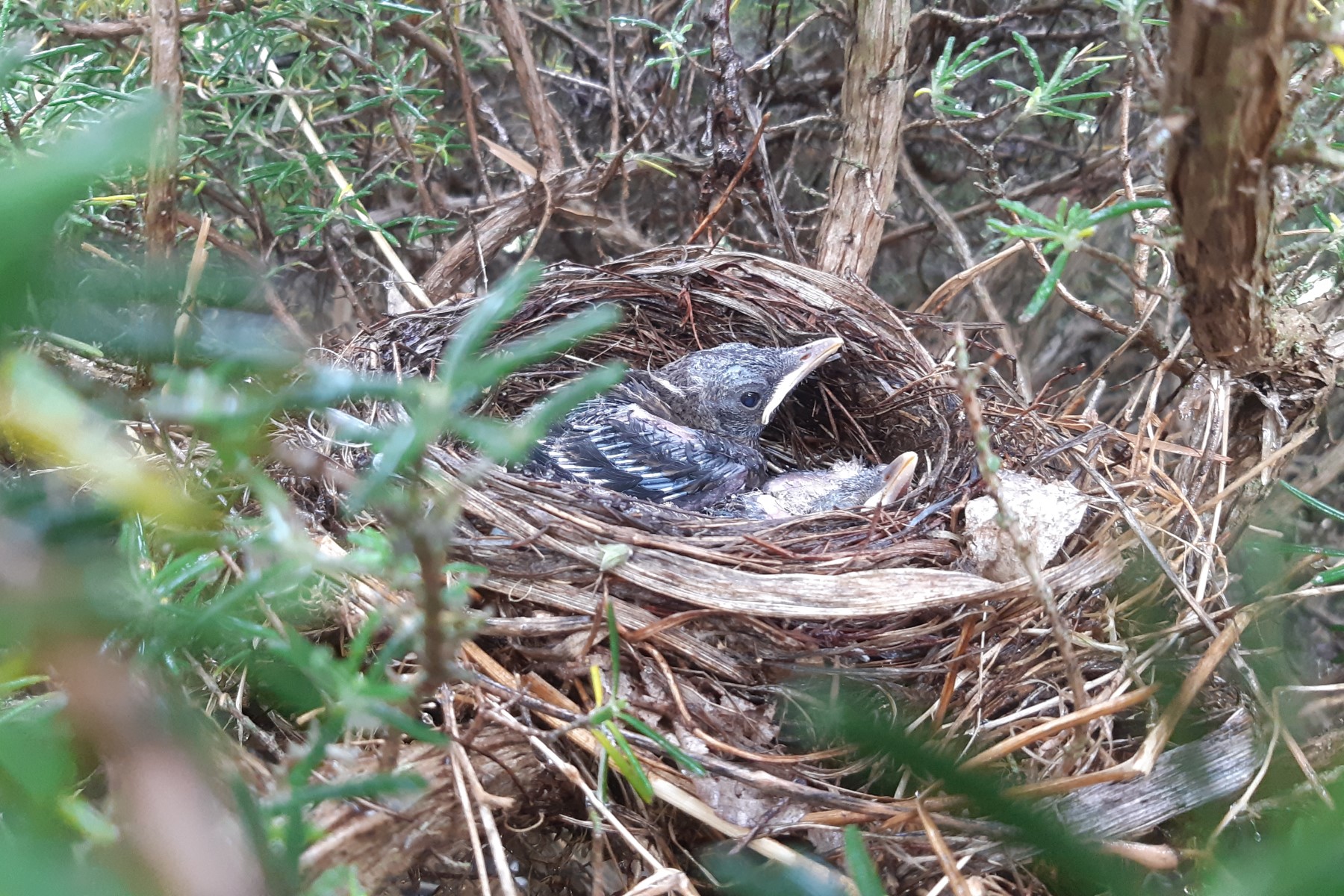
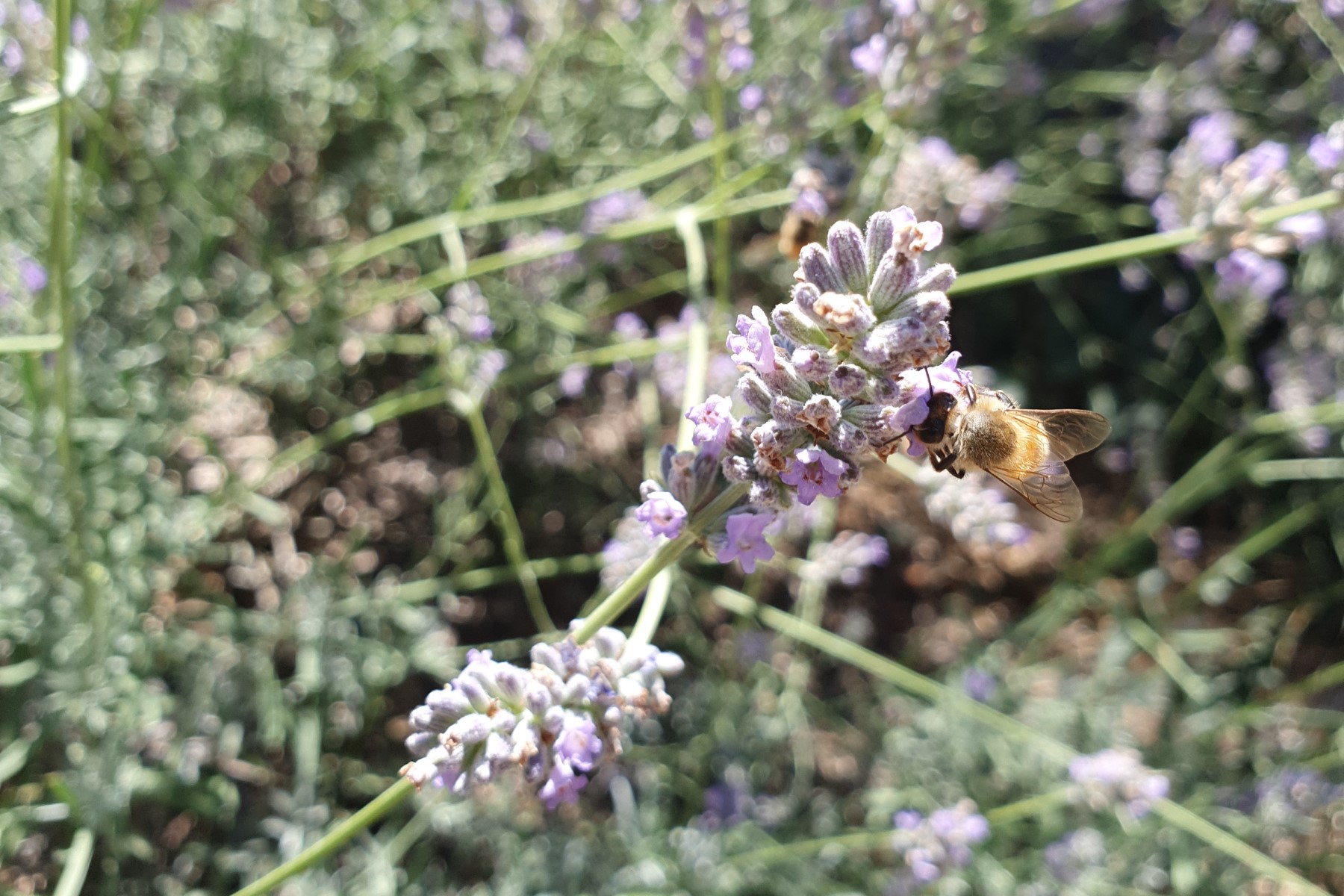
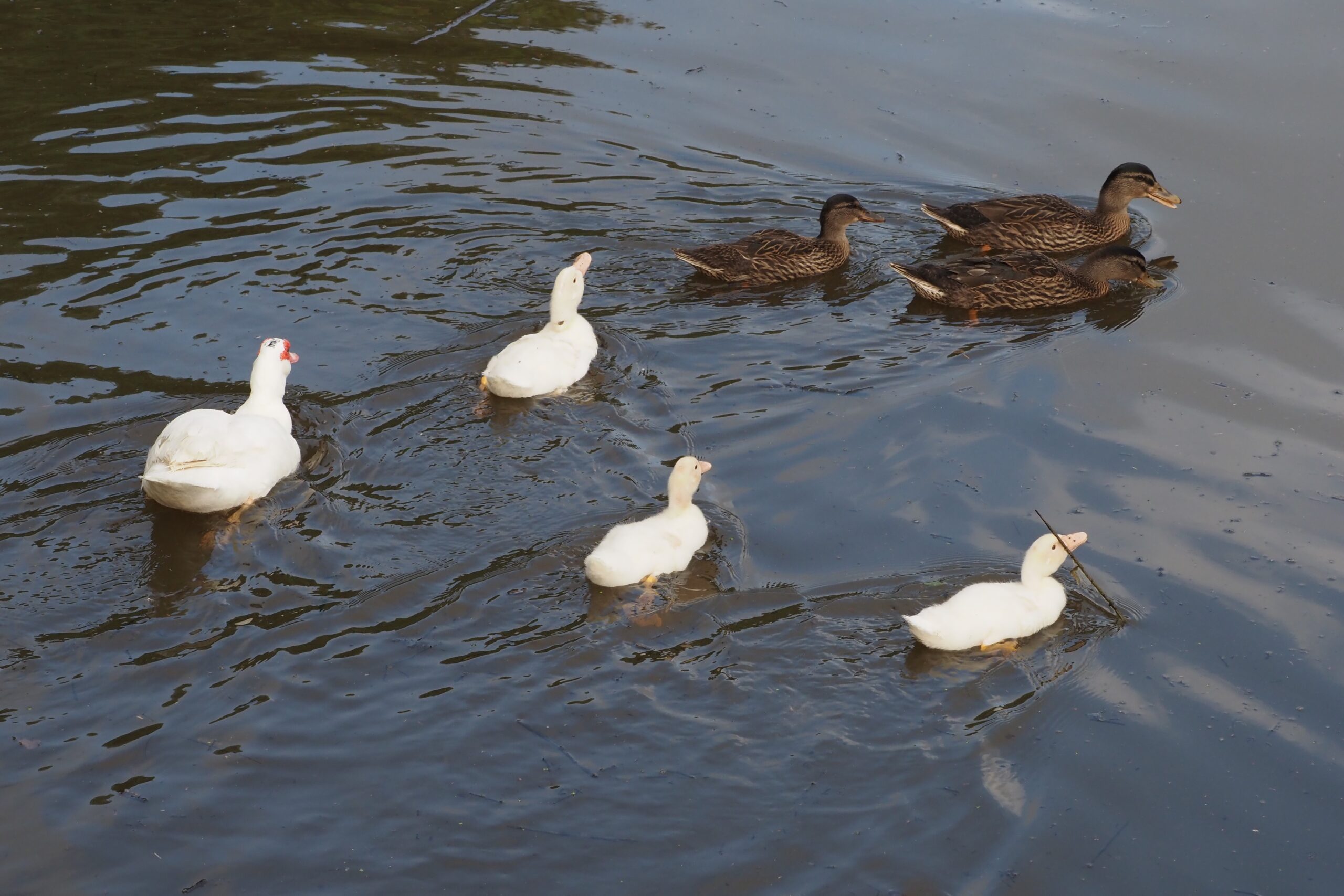
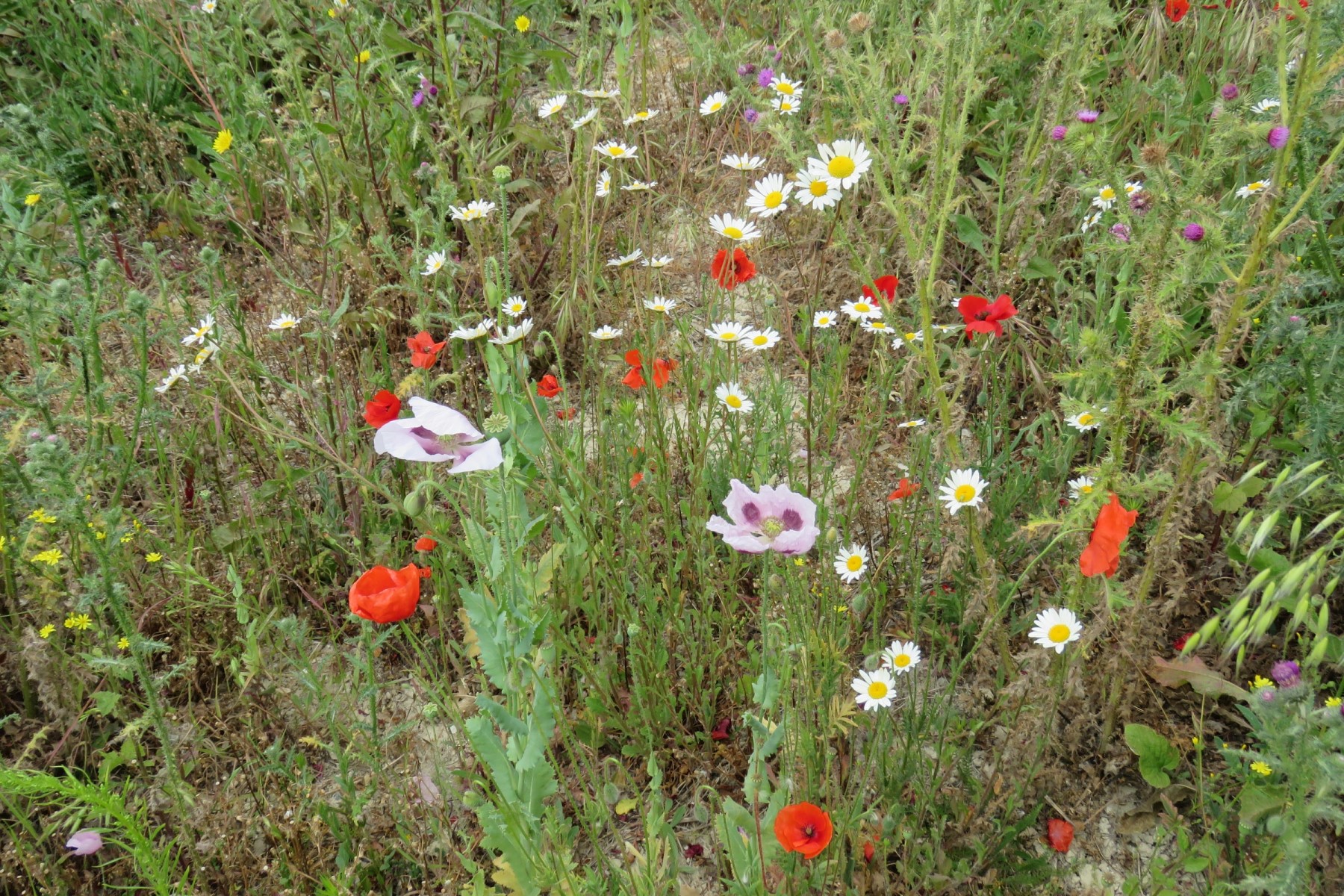
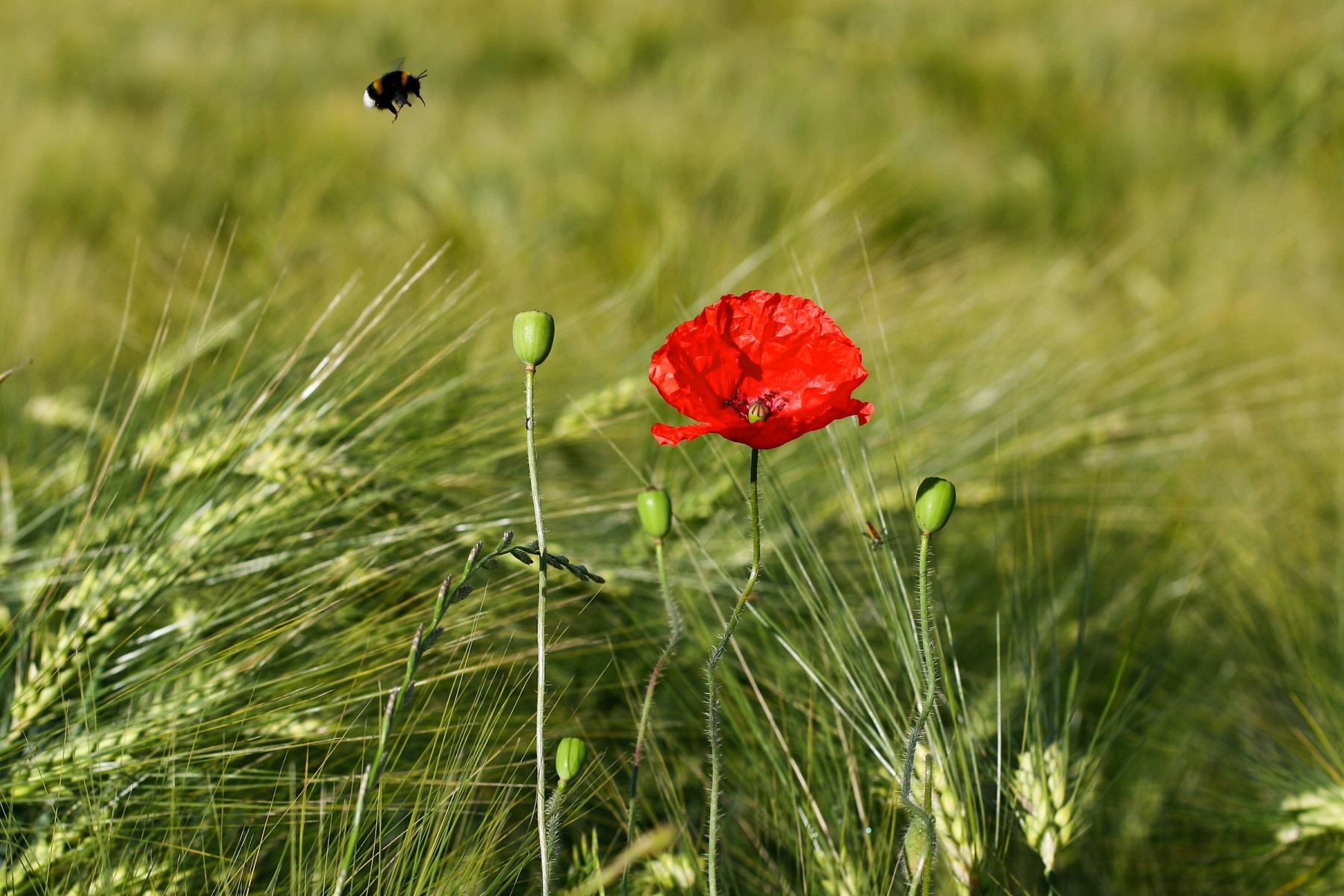
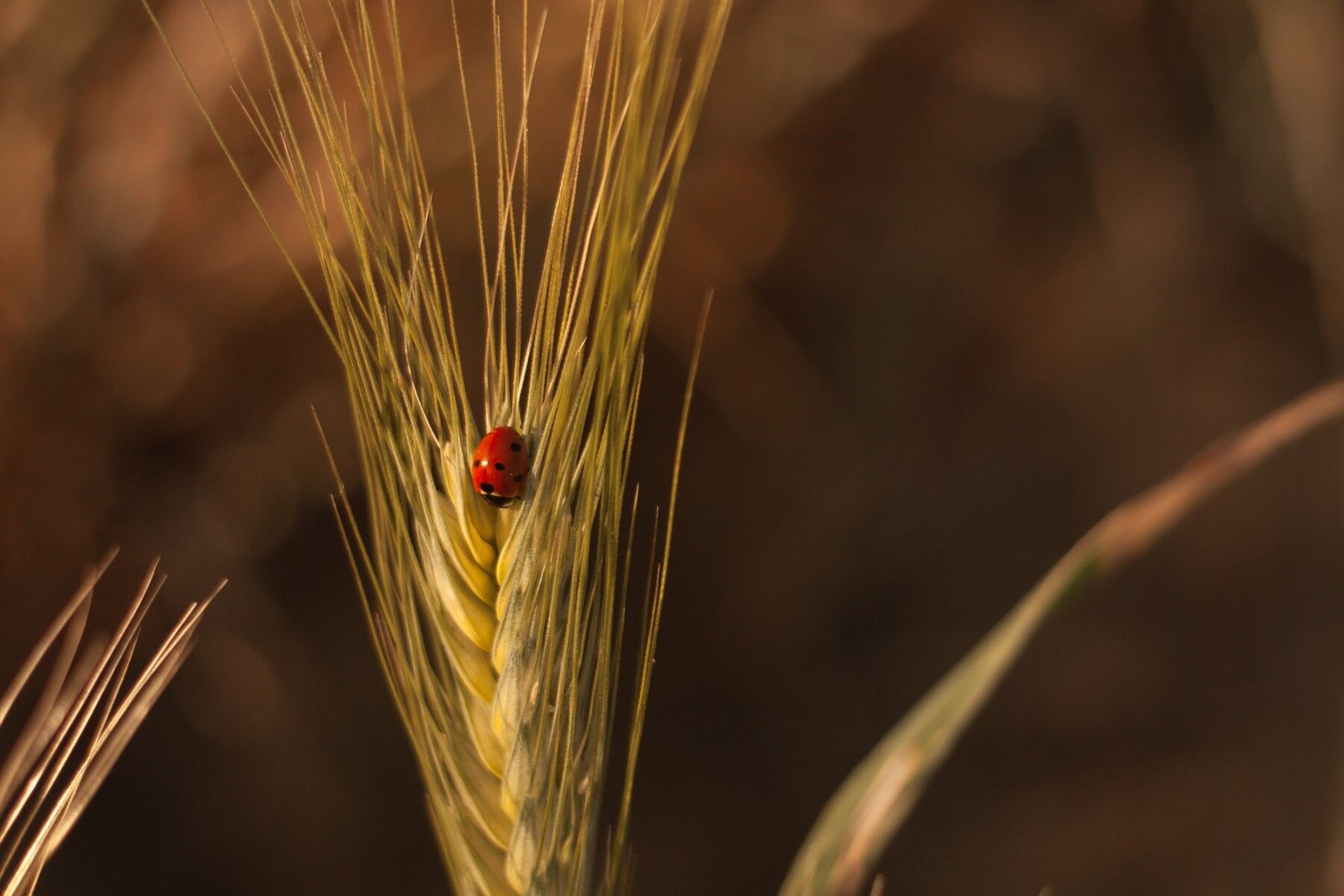
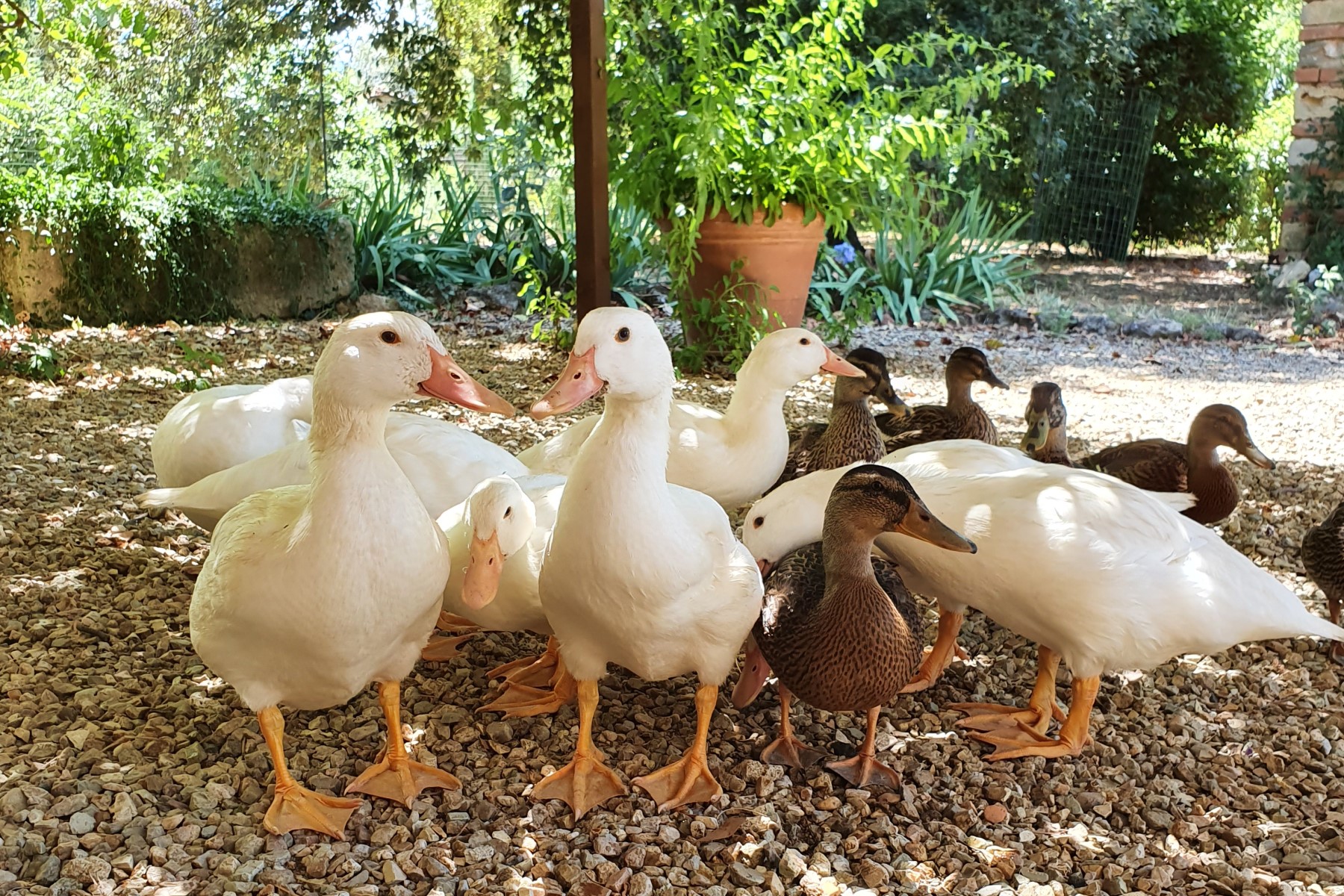
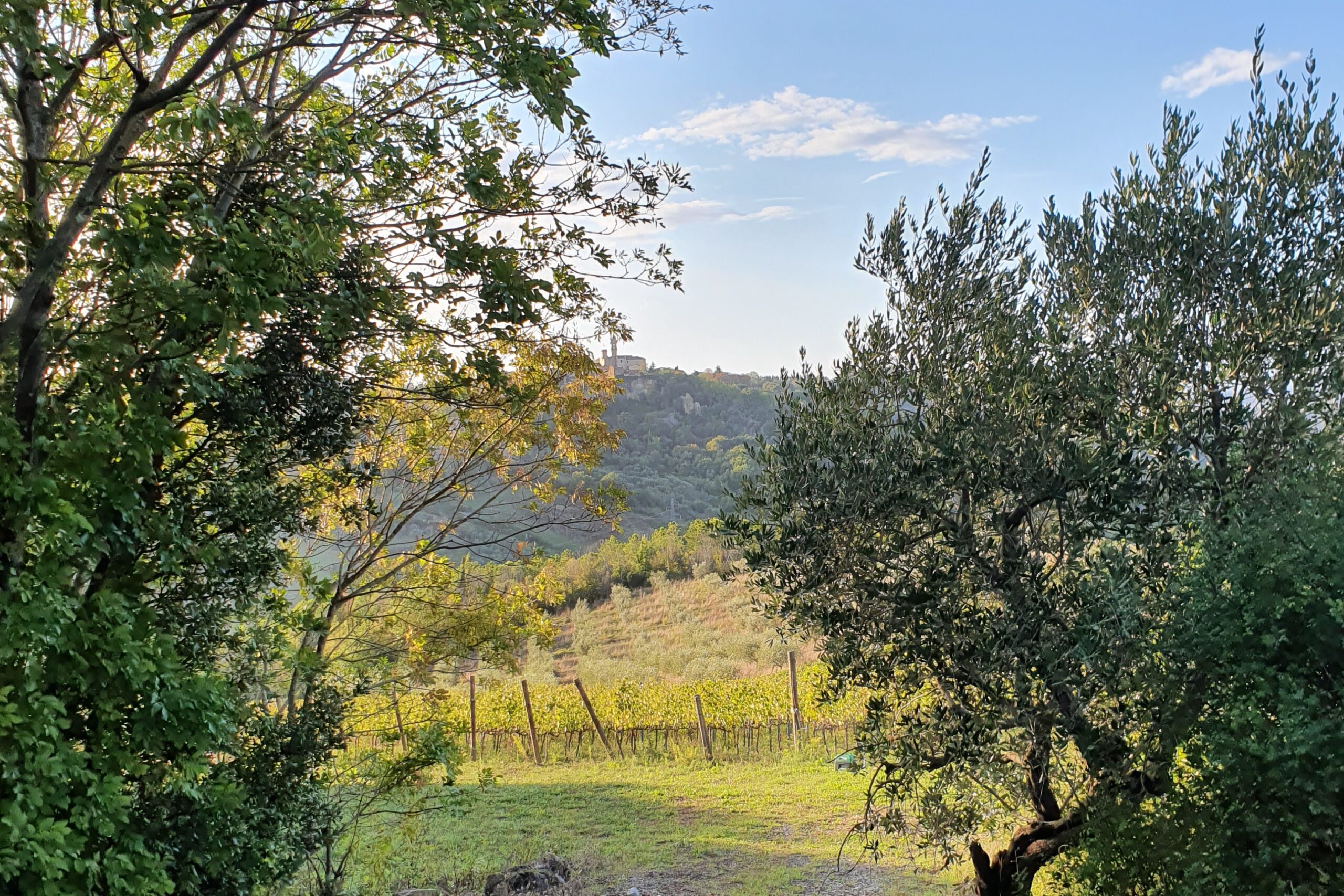
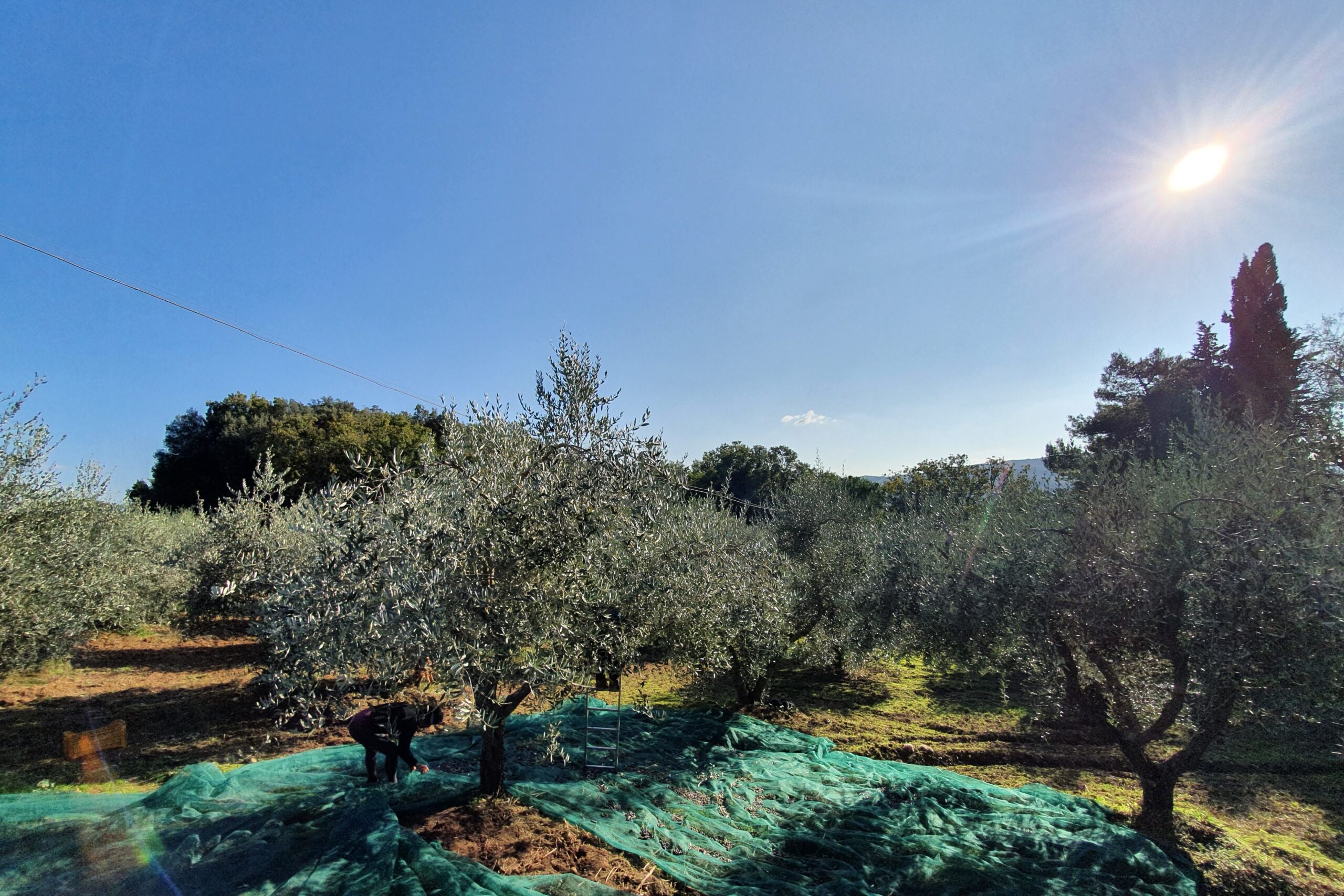
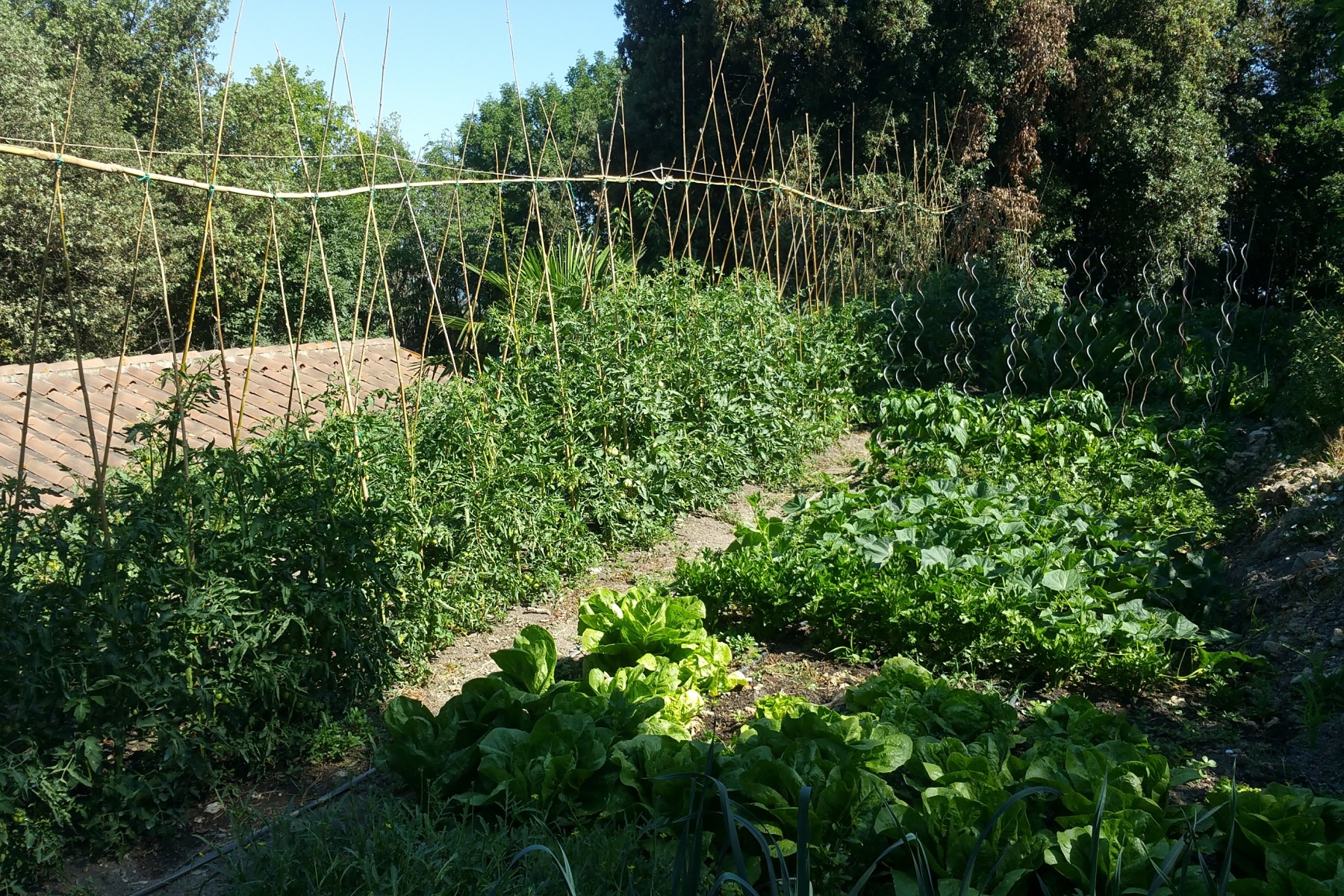
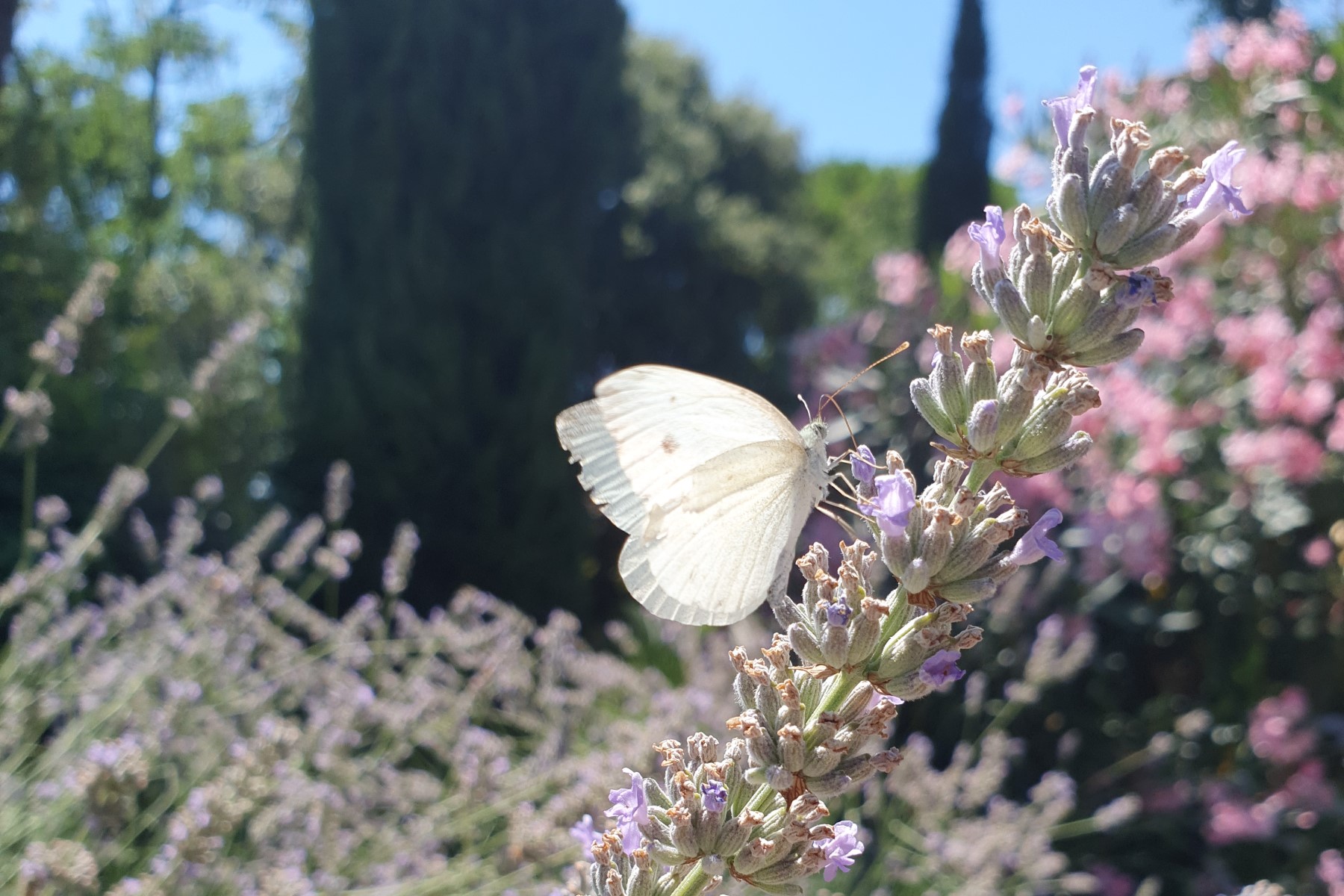
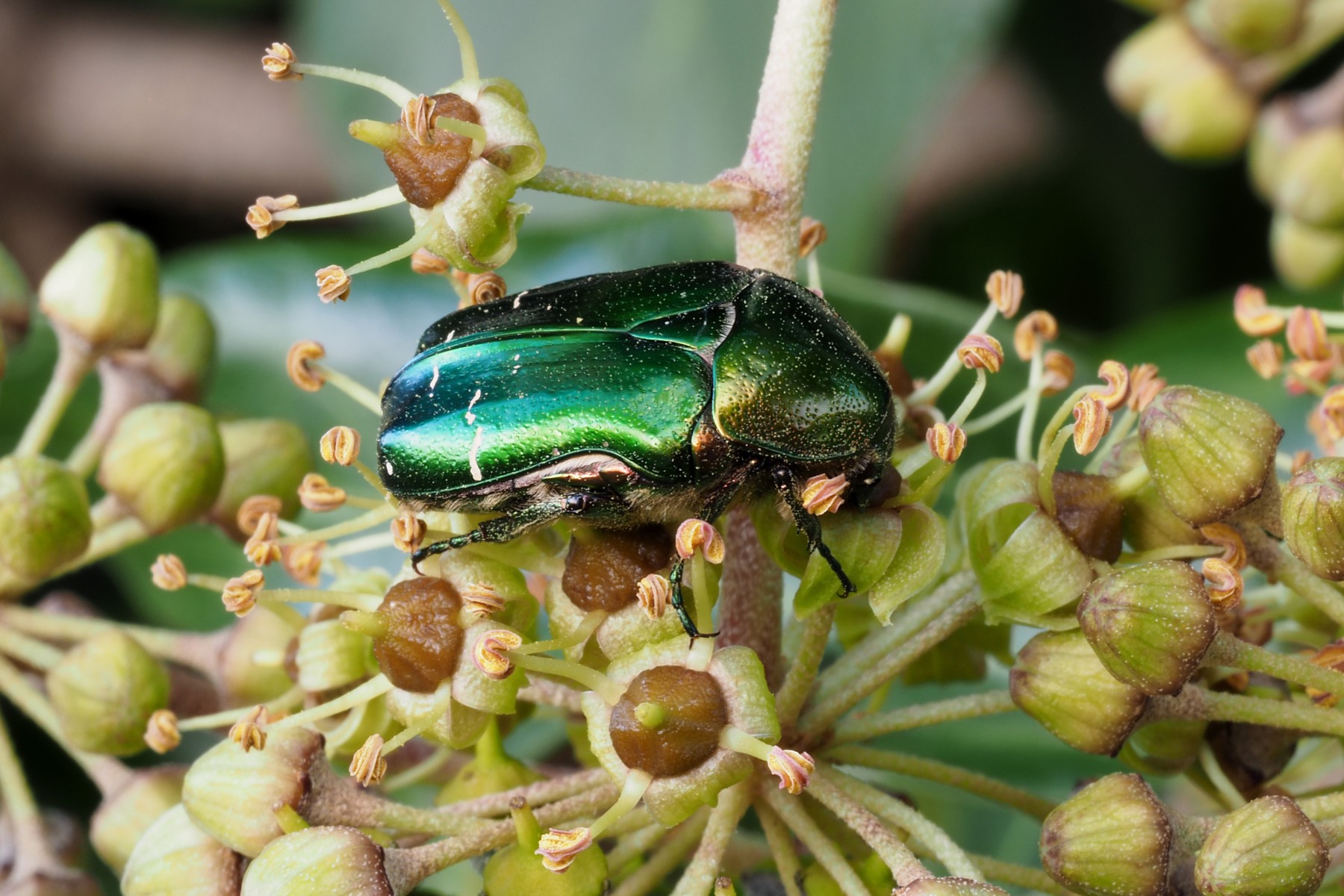

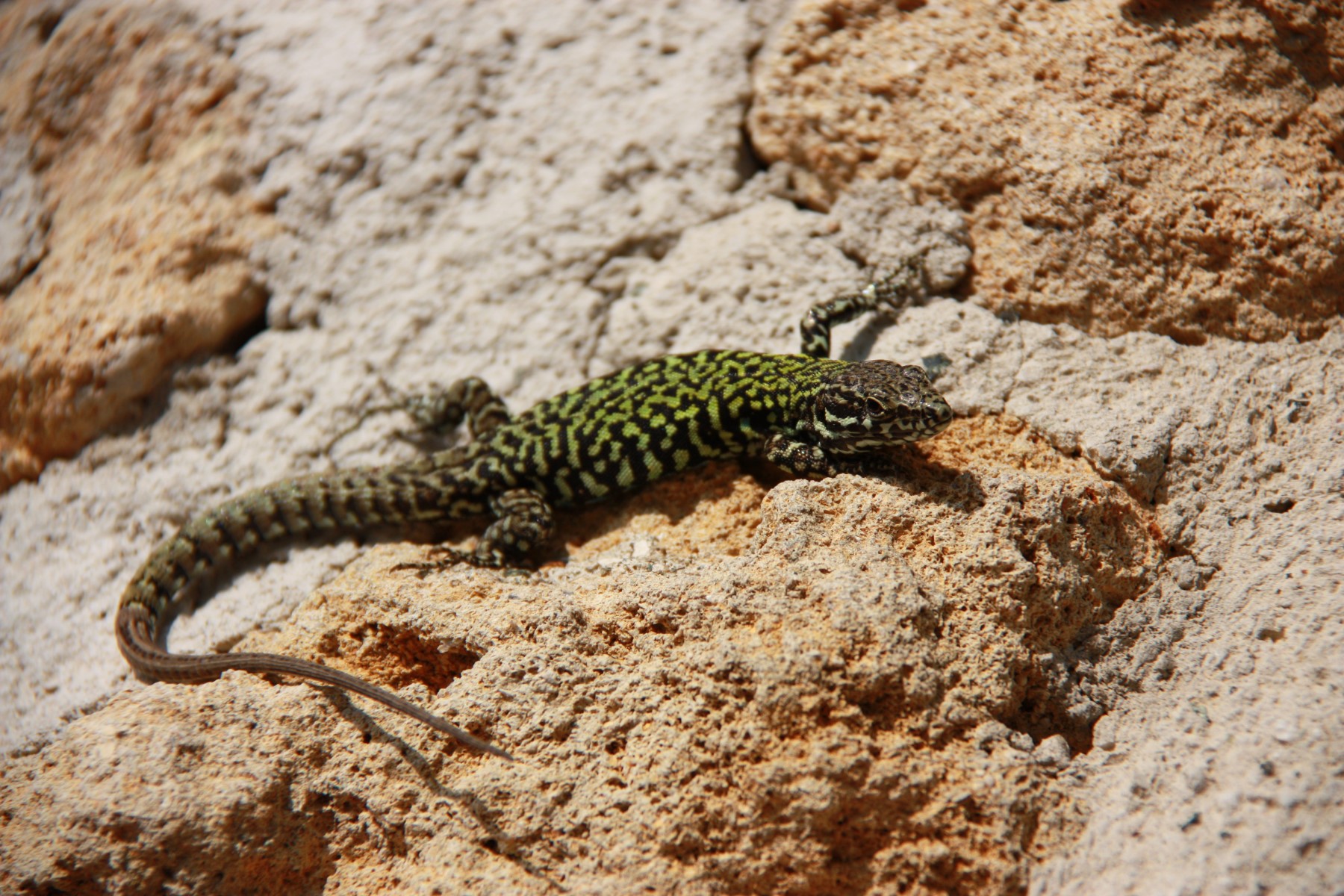
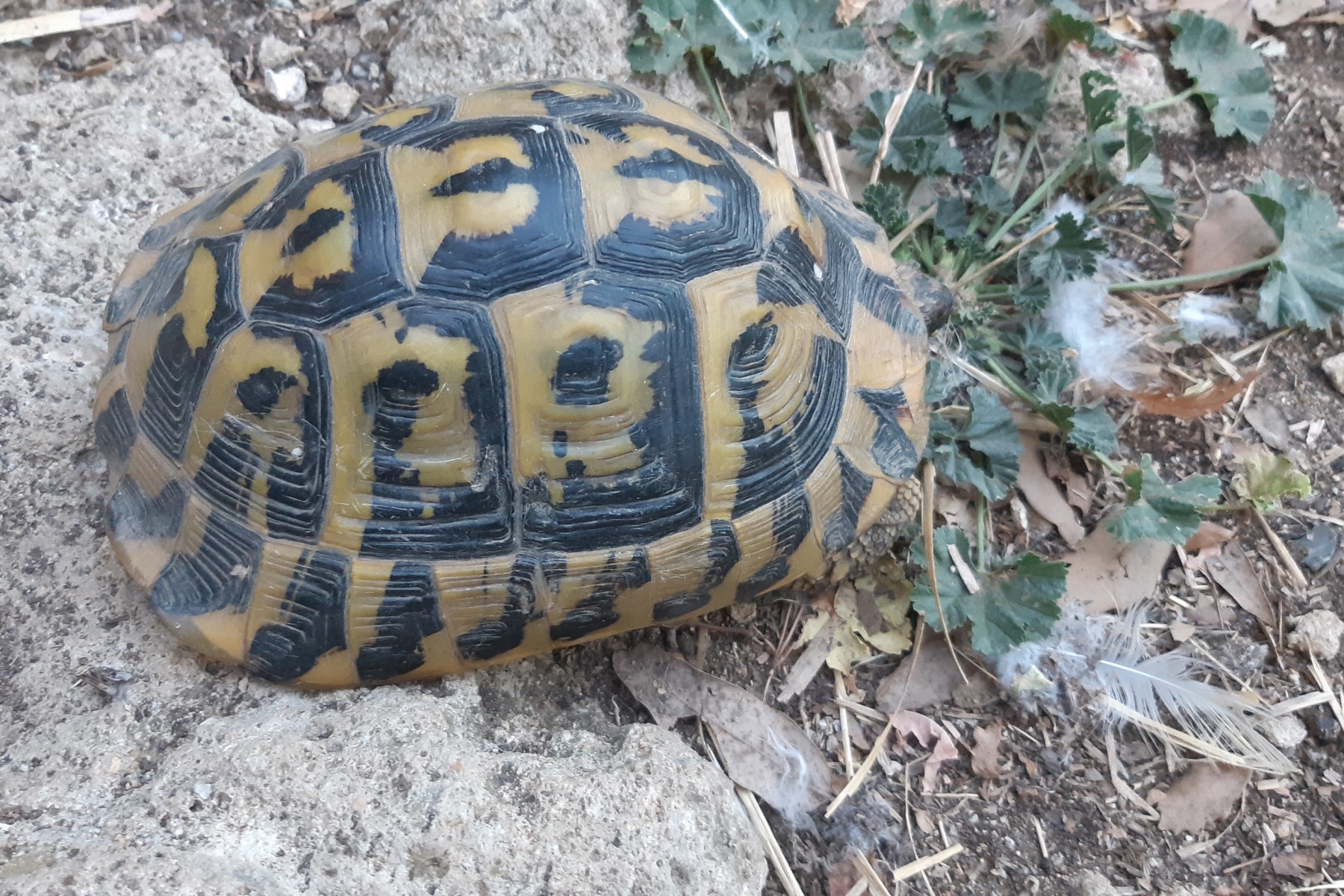
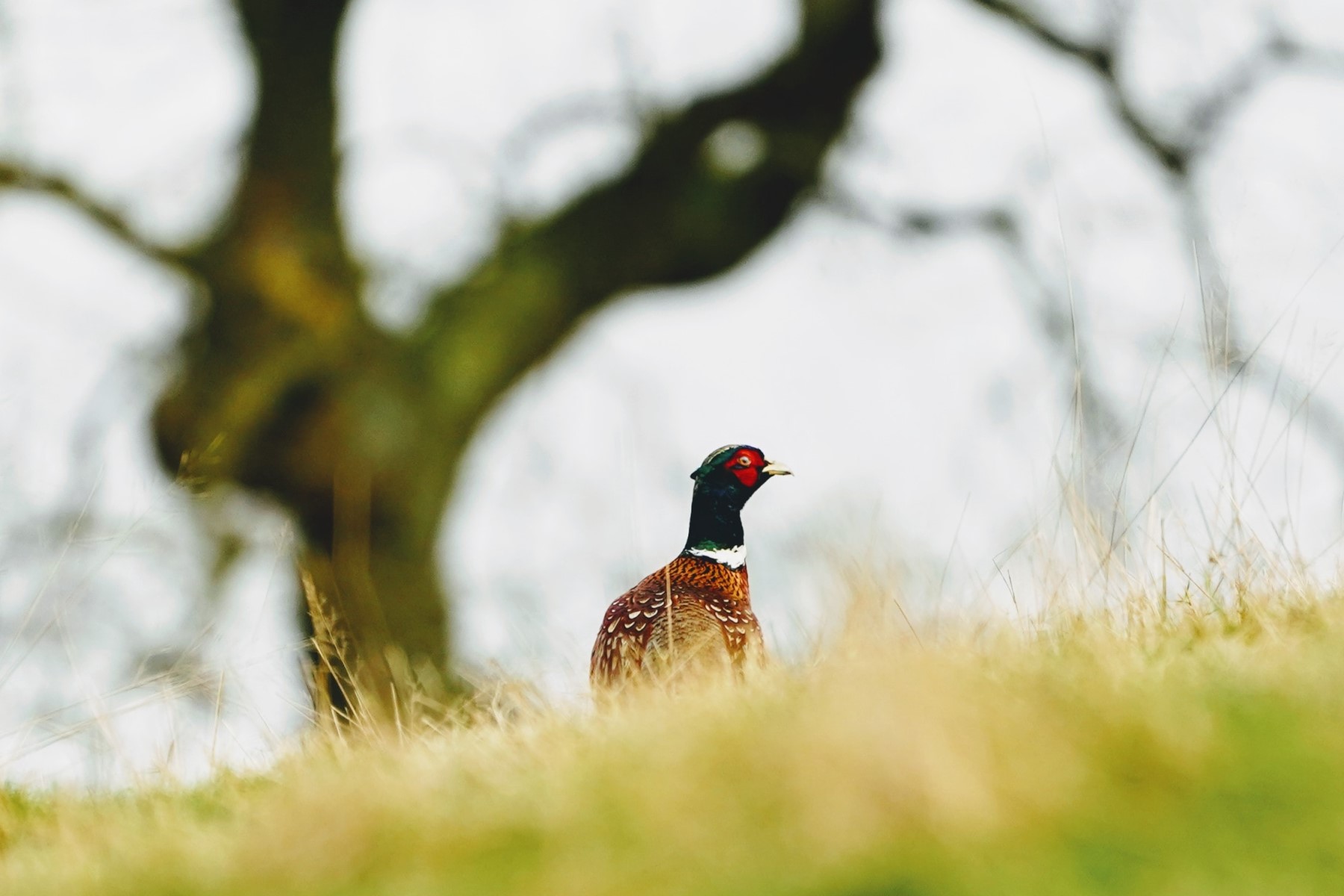
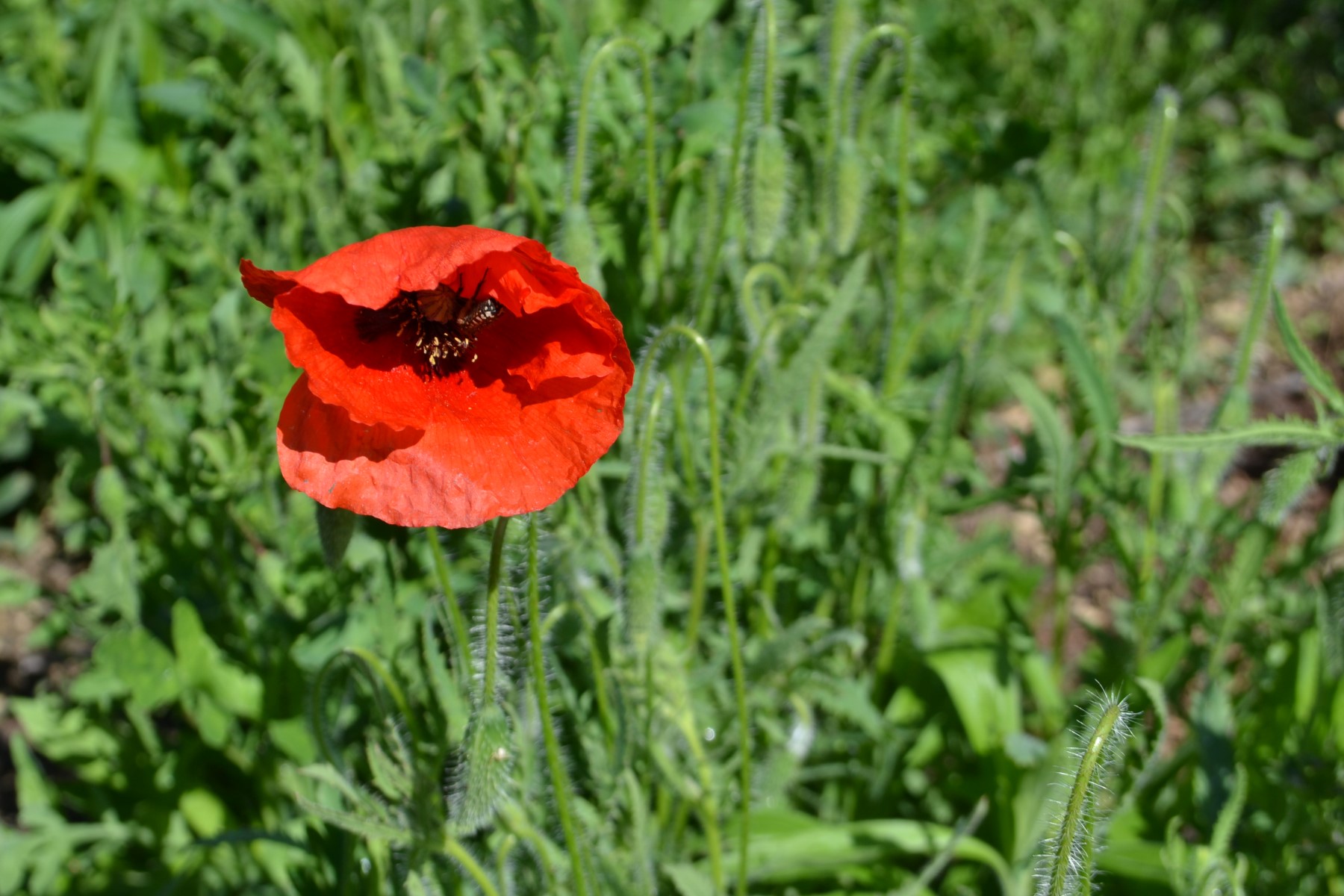
Avoid wasting resources
The top priority of any green holiday is stop wasting resources. In order not to use energy superfluously, we question the sense of some habitual patterns: Why light up the car park at night when each vehicle has its own lights front and back? Why spin sheets and towels at 1,400 revolutions per minute in the washing machine? Afterwards dry them in the dryer and iron them? After all, nature itself can take care of this! We have done the maths: Such a laundry treatment consumes an estimated 782 KWh of electricity per year. With CO2 emissions of roughly 420 kg. This equals the pollution produced by a car in 2,000 km. To compensate this, 34 mature trees would be needed. That’s why at Podere Palazzone we hang the laundry carefully on the line so that the sun and wind can dry and smooth it out. A pleasant side effect: the laundry takes on a little of the typical scent of Tuscany, of pine, rosemary and helichrysum.
Sustainable materials management
Sustainability also includes avoiding materials harmful to the environment. Obviously, with sensibleness. Because, of course we use chemical disinfectants such as chlorine in our infinity pool. At Podere Palazzone, waste is consistently separated and disposed of in four categories. A bio-composter is available for organic waste.
Natural steam
The Devil’s Valley, the Valle del Diavolo, stretches out from Pomarance towards the coast. It is peppered with natural steam reservoirs and hot water. For the Etruscans, these hot springs were sacred places of convalescence. Nowadays, they are popular thermal springs with natural pools in the open countryside and chic Spa baths.
Geothermal energy
In the Valle del Diavolo, the pressure of underground steam reservoirs is so high, that geothermal energy is used to generate electricity. Technically, this is done in an almost closed water cycle. This is because in the lower layers of the earth’s mantle, seepage water is heated by the heat of the earth’s core. It collects in subterranean cavities in form of vapor at up to 300° C and a pressure of 5 bar. These caves are tapped and routed to a turbine. As a result, the steam rotates the turbine and generates electricity. Afterwards, the vapour is cooled down so that it condenses back to water. The latter is fed back into the deep layers of the earth, where it is again heated by the earth’s core. When using this terrestrial energy, no CO2 is released, as is the case when fossil raw materials (gas, coal, oil) are burned. Furthermore, the energy of the earth’s core is virtually inexhaustible. As a “by-product”, when the steam cools down, heat is produced. It serves as district heating for the neighbouring towns both for hot water and heating.
No chemical fertilizers
Green holiday in Tuscany on our green farm, which does completely without chemical fertilisers. Indeed, the nutrients are supplied to our soil by mulching organic matter (leaves, cuttings) and horse manure. Because horses do not chew the cud, their manure is particularly rich in undigested plant fibres. These decompose into humus in the soil and improve its structure. As a result, the soil becomes an ecosystem of high biological vitality and fertility.
No chemical plant protection
Thanks to our attentive care of the vineyard and the olive grove, we can do without chemical pest treatment. As a result, pests such as the Bactrocera oleae (olive fruit fly) are largely kept away from our olive trees. Due to the exposed hillside location, a light breeze aways blows through the olives. In addition, the surrounding forests limit the risk of a fly invasion from the surrounding area. Only the peronospora infestation (downy mildew) of the vines has to be counteracted, if necessary, with the traditional Bordeaux broth, which is permitted in organic viticulture.
Biotope for insects
When so-called “organic tomatoes” grow in greenhouse-factories, this contradicts our understanding of natural vegetable cultivation. Such tomatoes are shielded under plastic and don’t have any contact with the natural atmosphere. Instead, the tomatoes from our Agriturismo are part of a diverse ecosystem. Because, from the root to the fruit, they provide a habitat for butterflies, insects and worms. And by the way, as they enjoy a lot of direct sunshine, they are also particularly aromatic. In early summer, fireflies cavort around our holiday home in the evenings. Our garden then resembles a starry sky. It’s a sign that the world is still largely in order here.
No monoculture
There are no olive tree plantations or vineyard monocultures in our neighbourhood. Instead, small rural olive groves alternate with sheep pastures, fields and dense forest. In between are small family-run vineyards and the classic Tuscan maquis. Songbirds, owls and buzzards live here. Gray herons regularly stop by on their way north. Wild boar, deers, rabits, squirrels and porcupines feel at home here. Bees, cockchafers, frogs or turtles all find a natural home in the biotope around the Podere Palazzone. Furthermore, the wolf has resettled in the nearby Foresta di Berignone Nature Park.
Vegetarian organic products
Green holidays in Tuscany also in our restaurant. Wherever possible, we use local products from Tuscany in the Podere Palazzone holiday home. In addition, in our organic vegetable garden we grow salads and various types of vegetables. Our guests can also harvest their own lunch here. Our tomatoes and the sauce made from them are particularly delicious. Furthermore, what we don’t grow ourselves, we exchange with other vegetable gardeners in the neighbourhood. Rosemary, a must in Tuscan cuisine, grows everywhere in our garden. In addition, we have almost everything your palate desires in our herb garden. Our extra virgin organic olive oil from first cold pressing is exquisite. Also, taste our two organic red wines, with and without barrique ageing.
Animal organic products
Eggs from home-bred and free-ranging happy chickens complete our in-house production. We source meat from the local butcher Nicola, who processes regional specialties such as Cinta Senese pork and Chianina beef. Even salt comes from the region. Because in the salt mines of Saline di Volterra, the “white gold” with a purity of 99.99% has been extracted for 2,500 years. The purest table salt in Italy.
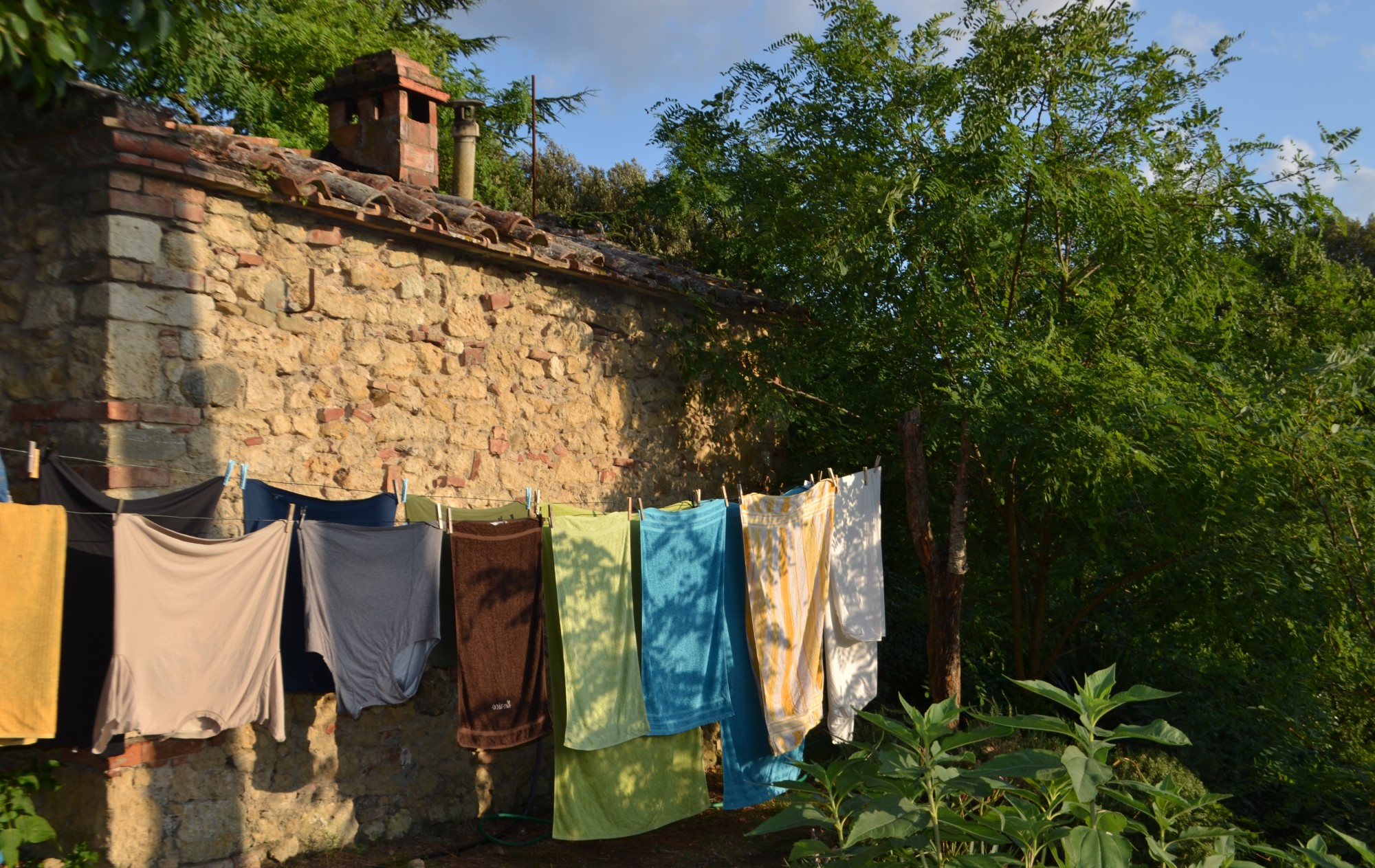
Green holiday in Italy, where Tuscany is still authentic
We are glad offering you green holiday in Italy. Even during vacation, you can enjoy your life as environmentally friendly and climate neutral as possible. Save the planet while staying in Tuscany just the way you do at home. At Agriturismo Podere Palazzone we face up to our responsibility towards environment and therefore are committed to sustainability. We know it is only a small contribution we can give, but in our concrete sphere of influence we try doing our best. The environmental conditions around our holiday home, as well as the natural resources of Tuscany in the surroundings, do certainly help us.
Obviously, our guests have the chance of minimising their ecological footprint during their stay at Agriturismo Podere Palazzone, too. Nevertheless, without compromising on comfort. Find out more about how we and you can make green holiday in Italy come true.
Avoid wasting resources
The top priority of any green holiday is stop wasting resources. In order not to use energy superfluously, we question the sense of some habitual patterns: Why light up the car park at night when each vehicle has its own lights front and back? Why spin sheets and towels at 1,400 revolutions per minute in the washing machine? Afterwards dry them in the dryer and iron them? After all, nature itself can take care of this! We have done the maths: Such a laundry treatment consumes an estimated 782 KWh of electricity per year. With CO2 emissions of roughly 420 kg. This equals the pollution produced by a car in 2,000 km. To compensate this, 34 mature trees would be needed. That’s why at Podere Palazzone we hang the laundry carefully on the line so that the sun and wind can dry and smooth it out. A pleasant side effect: the laundry takes on a little of the typical scent of Tuscany, of pine, rosemary and helichrysum.
Green materials & waste management
Sustainability also includes avoiding materials harmful to the environment. Obviously, with sensibleness. Because, of course we use chemical disinfectants such as chlorine in our infinity pool. At Podere Palazzone, waste is consistently separated and disposed of in four categories. A bio-composter is available for organic waste.
Natural steam
The Devil’s Valley, the Valle del Diavolo, stretches out from Pomarance towards the coast. It is peppered with natural steam reservoirs and hot water. For the Etruscans, these hot springs were sacred places of convalescence. Nowadays, they are popular thermal springs with natural pools in the open countryside and chic Spa baths.
Geothermal energy
In the Valle del Diavolo, the pressure of underground steam reservoirs is so high, that geothermal energy is used to generate electricity. Technically, this is done in an almost closed water cycle. This is because in the lower layers of the earth’s mantle, seepage water is heated by the heat of the earth’s core. It collects in subterranean cavities in form of vapor at up to 300° C and a pressure of 5 bar. These caves are tapped and routed to a turbine. As a result, the steam rotates the turbine and generates electricity. Afterwards, the vapour is cooled down so that it condenses back to water. The latter is fed back into the deep layers of the earth, where it is again heated by the earth’s core. When using this terrestrial energy, no CO2 is released, as is the case when fossil raw materials (gas, coal, oil) are burned. Furthermore, the energy of the earth’s core is virtually inexhaustible. As a “by-product”, when the steam cools down, heat is produced. It serves as district heating for the neighbouring towns both for hot water and heating.
No chemical fertilizers
Green holiday in Tuscany on our green farm, which does completely without chemical fertilisers. Indeed, the nutrients are supplied to our soil by mulching organic matter (leaves, cuttings) and horse manure. Because horses do not chew the cud, their manure is particularly rich in undigested plant fibres. These decompose into humus in the soil and improve its structure. As a result, the soil becomes an ecosystem of high biological vitality and fertility.
No chemical plant protection
Thanks to our attentive care of the vineyard and the olive grove, we can do without chemical pest treatment. As a result, pests such as the Bactrocera oleae (olive fruit fly) are largely kept away from our olive trees. Due to the exposed hillside location, a light breeze aways blows through the olives. In addition, the surrounding forests limit the risk of a fly invasion from the surrounding area. Only the peronospora infestation (downy mildew) of the vines has to be counteracted, if necessary, with the traditional Bordeaux broth, which is permitted in organic viticulture.
Biotope for insects
When so-called “organic tomatoes” grow in greenhouse-factories, this contradicts our understanding of natural vegetable cultivation. Such tomatoes are shielded under plastic and don’t have any contact with the natural atmosphere. Instead, the tomatoes from our Agriturismo are part of a diverse ecosystem. Because, from the root to the fruit, they provide a habitat for butterflies, insects and worms. And by the way, as they enjoy a lot of direct sunshine, they are also particularly aromatic. In early summer, fireflies cavort around our holiday home in the evenings. Our garden then resembles a starry sky. It’s a sign that the world is still largely in order here.
No monoculture
There are no olive tree plantations or vineyard monocultures in our neighbourhood. Instead, small rural olive groves alternate with sheep pastures, fields and dense forest. In between are small family-run vineyards and the classic Tuscan maquis. Songbirds, owls and buzzards live here. Gray herons regularly stop by on their way north. Wild boar, deers, rabits, squirrels and porcupines feel at home here. Bees, cockchafers, frogs or turtles all find a natural home in the biotope around the Podere Palazzone. Furthermore, the wolf has resettled in the nearby Foresta di Berignone Nature Park.
Vegetarian organic products
Green holidays in Tuscany also in our restaurant. Wherever possible, we use local products from Tuscany in the Podere Palazzone holiday home. In addition, in our organic vegetable garden we grow salads and various types of vegetables. Our guests can also harvest their own lunch here. Our tomatoes and the sauce made from them are particularly delicious. Furthermore, what we don’t grow ourselves, we exchange with other vegetable gardeners in the neighbourhood. Rosemary, a must in Tuscan cuisine, grows everywhere in our garden. In addition, we have almost everything your palate desires in our herb garden. Our extra virgin organic olive oil from first cold pressing is exquisite. Also, taste our two organic red wines, with and without barrique ageing.
Animal organic products
Eggs from home-bred and free-ranging happy chickens complete our in-house production. We source meat from the local butcher Nicola, who processes regional specialties such as Cinta Senese pork and Chianina beef. Even salt comes from the region. Because in the salt mines of Saline di Volterra, the “white gold” with a purity of 99.99% has been extracted for 2,500 years. The purest table salt in Italy.


